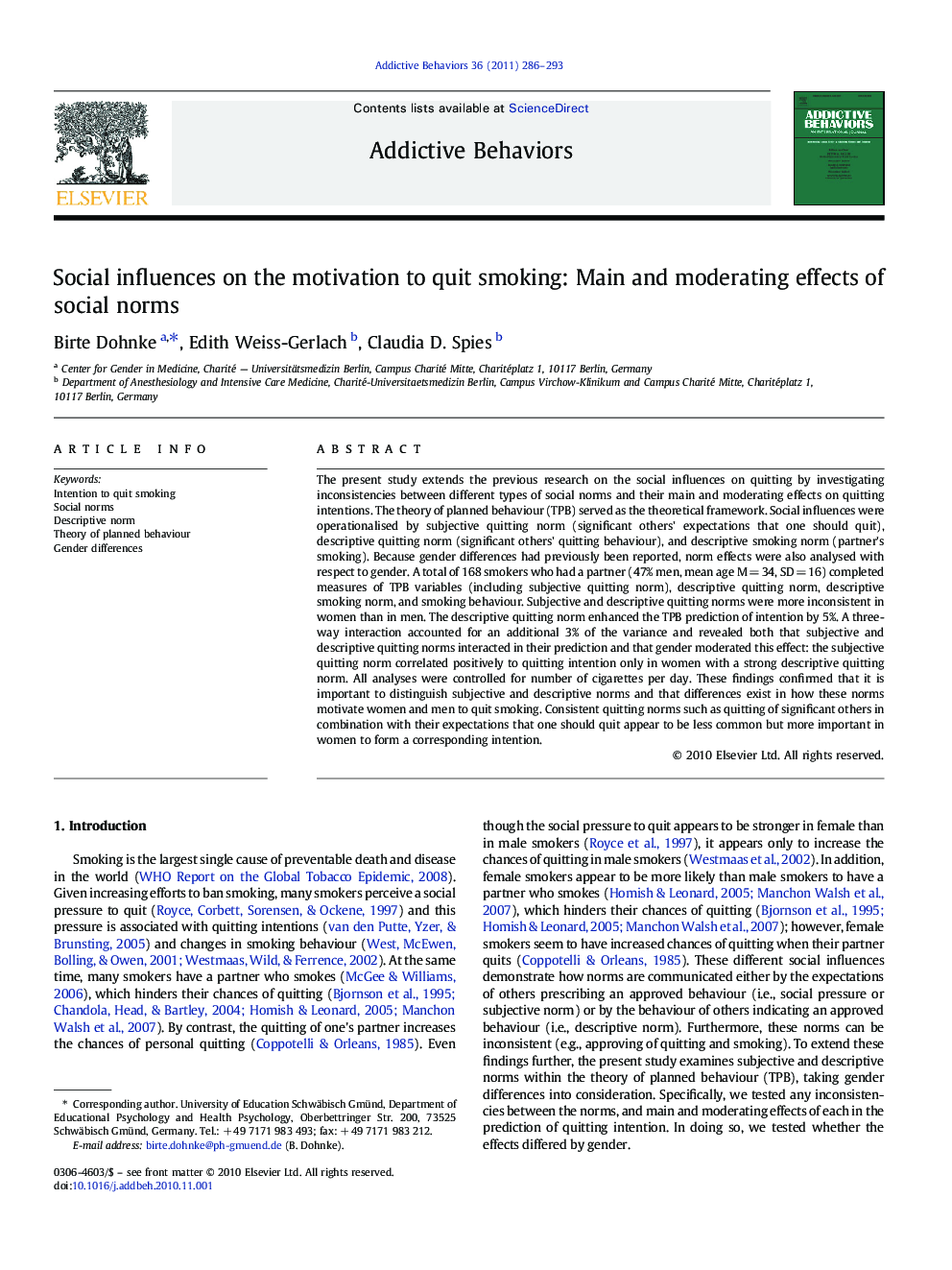| کد مقاله | کد نشریه | سال انتشار | مقاله انگلیسی | نسخه تمام متن |
|---|---|---|---|---|
| 899231 | 915368 | 2011 | 8 صفحه PDF | دانلود رایگان |

The present study extends the previous research on the social influences on quitting by investigating inconsistencies between different types of social norms and their main and moderating effects on quitting intentions. The theory of planned behaviour (TPB) served as the theoretical framework. Social influences were operationalised by subjective quitting norm (significant others' expectations that one should quit), descriptive quitting norm (significant others' quitting behaviour), and descriptive smoking norm (partner's smoking). Because gender differences had previously been reported, norm effects were also analysed with respect to gender. A total of 168 smokers who had a partner (47% men, mean age M = 34, SD = 16) completed measures of TPB variables (including subjective quitting norm), descriptive quitting norm, descriptive smoking norm, and smoking behaviour. Subjective and descriptive quitting norms were more inconsistent in women than in men. The descriptive quitting norm enhanced the TPB prediction of intention by 5%. A three-way interaction accounted for an additional 3% of the variance and revealed both that subjective and descriptive quitting norms interacted in their prediction and that gender moderated this effect: the subjective quitting norm correlated positively to quitting intention only in women with a strong descriptive quitting norm. All analyses were controlled for number of cigarettes per day. These findings confirmed that it is important to distinguish subjective and descriptive norms and that differences exist in how these norms motivate women and men to quit smoking. Consistent quitting norms such as quitting of significant others in combination with their expectations that one should quit appear to be less common but more important in women to form a corresponding intention.
Research Highlights
► To test social influences on quitting intentions with gender differences herein.
► The theory of planned behaviour was amended by the descriptive norm construct.
► Subjective and descriptive quitting norms were more inconsistent in women than men.
► Both quitting norms interacted in their prediction moderated by gender.
► Perceiving others to quit combined with social pressure less common but more important in women.
Journal: Addictive Behaviors - Volume 36, Issue 4, April 2011, Pages 286–293